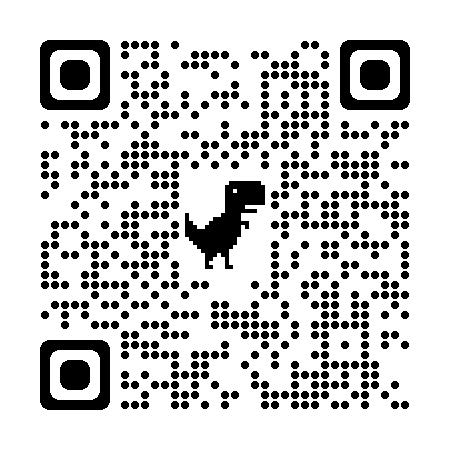Collaboration
Top Ten Things Teachers Wish Parents Would Do
1. Participate in their children’s education. Parent involvement helps students learn, improves schools and makes teacher’s job easier.
2. Provide resources at home for reading and learning. Supply books and magazines for children and read with them each day.
3. Set a good example. Show your children that you believe reading is enjoyable and useful.
4. Encourage children to do their best in school. Help them set obtainable goals and monitor involvement in other activities.
5. Concern themselves first with academic progress, next with students’ preparation to assume adult responsibilities, (work, etc.), then finally, involvement in athletics and activities.
6. Support school rules, discipline policies, and achievement goals.
7. Call teachers as soon as a problem becomes apparent so that prompt action can be taken.
8. Teach basic self-discipline, good manners and other social skills that children need throughout their lives.
9. Understand that alcohol, tobacco and excessive partying are problems as serious as drug abuse. All these can cause both a student’s health and classroom performance to suffer.
10. Remember that teachers are people, too. Many are parents, and share your parent challenges. Teachers want your students to succeed: help them.
Reprinted from the National PTA
Even though parents and teachers want what is best for a child, sometimes that message can get lost. When parents and teachers see things from different perspectives and fail to communicate their concerns effectively — or feel their ideas are not accepted — parent/teacher relationships can flounder. However, teachers and parents can — and should — find ways to complement each other’s skills and knowledge. By focusing on the child and developing effective communication techniques, they can work together to build an educational plan that meets the child’s needs and has the support of school and family. The following techniques have helped parents and teachers build positive and strong relationships.
Strategies That Help Parents and Professionals Work Together
When parents and teachers work together, it sends the student the message that “we’re all in this together.” Therefore, it is vital that both parties learn to share planning for the child’s instructional needs, as well as identification of potential problems or areas that need work. The following practices form the basis for a good relationship:
Listen actively — Teachers should put themselves in parent’s and student’s shoes, and parents and students should put themselves in the teacher’s shoes. Show compassion, sensitivity, empathy, and mutual respect for each other. All parties should try to understand the other’s perspective. By consistently trying to understand each other and focusing on developing solutions, negative situations can be avoided.
Treat each other as equal partners in the planning and decision making. Develop a mutual understanding of the strengths and needs of the student — Parents and teachers should share their understanding of the child’s learning styles. Parents can provide input on how they see the child’s physical strength, how the child interacts with others, and the child’s mental processing out of the classroom, while the teacher can share his or her observations from a class vantage point. Plus, children can contribute their ideas on the ways they learn best, as well as the factors that inhibit their learning.
Trust each other’s judgment. Approach disagreements in a manner that encourages mutual problem-solving. Utilize a problem-solving model to keep emotionalism at bay. Most models include: stating the problem, brainstorming ideas, and developing a solution. Share the model with all parents and students to let them know how the school resolves issues.
Teachers should never criticize a parent and a parent should never criticize a teacher in front of a student. The student should believe the school and family are working together for his or her benefit.
Develop a Learning Profile of the Child:
By working together, parents and teachers can get a true picture of a child and create an instructional plan that works for the child — and has the support of teachers and parents. Parents and teachers should consider: the student’s strengths; the student’s needs (physical, intellectual or cognitive, educational or academic, cultural, emotional and/or behavioural, social); the child’s interests/activities; the child’s goals; the child’s expectations; and the parent’s expectations.
Successful Meetings for Parents and Professionals
Successful meetings require the participation of teachers and parents. Both have relevant information that will help each other understand the child and develop a learning program that best fits the child’s needs. To ensure parent teacher meetings meet these objectives, both parties should: focus on the best interests of the child; concentrate on determining a positive course of action; list questions before attending the meeting. This helps keep emotionalism from obstructing your goal and ensures that major questions are answered. Ask questions about strategies, terms, or behaviours you don’t understand. This is an opportunity to clear up misunderstandings, and possibly, hard feelings. Determine the ways in which parents and teachers can share responsibilities.
Teachers need to share the strategies they are using in the classroom so that parents can use them at home. Parents can make sure the student has a place to do homework, as well as the equipment they need to complete assignments — and if the child is not completing assignments, to enact consequences at home. Ask for suggestions.
Teachers can learn successful strategies to work with a child by asking for suggestions from parents and students. Conversely, parents can ask teachers for learning or behaviour strategies they can try at home. Share information with the child. By attending parent/teacher meetings, students can present their ideas and perspectives and learn to advocate for their needs. Set up a procedure for follow-up. Summarize the information, as this will be the basis for the next meeting. Express appreciation for each other’s participation in the conference.
Continuing the Relationship
A continuing relationship between family and school requires a commitment to communication and shared responsibility. To encourage further positive parent / teacher interactions, set up a communication mode that works for parents, teachers and students. In addition to meetings, letters, faxes, and phone calls, computer networks can augment communication.
Some educators and families correspond via a communication book in which parents, teachers, and students write down observations, ideas,and concerns. Respond to suggestions; if any party asks for suggestions, they should try them. The suggestions can be assessed and re-evaluated at a later date. Carry out responsibilities; both parties are responsible for carrying out their responsibilities as outlined in the action plan. A re-evaluation may indicate a later change. Monitor the progress of the action plan. Evaluating the action plan can include input from numerous sources: self-evaluation, peer evaluation, formal and informal assessments, and/or home and school observations. All forms of evaluation should have been set out in the action plan.
Lynn Ziraldo is the strategic advisor of the Learning Disabilities Association, York Region. She is the parent of two adults with special needs.


 Collaboration
Collaboration






